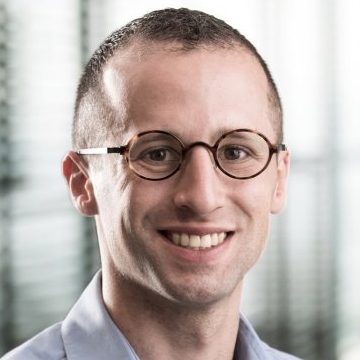
OpEds

SA Jewish community at risk of losing young, skilled immigrants
DAN BROTMAN
I am proud that my company provides global exposure and expansion opportunities to hundreds of small, medium and micro-sized enterprises (SMMEs) and corporates – and proud of the fact that we have created employment for South Africans.
Given that I can access almost 200 countries visa-free, many people could not understand why I chose to apply for South African citizenship in 2016. For me, citizenship is a tangible sign of identity and belonging, and I yearned to ‘belong’ on paper to the country I had lived in for the majority of my adult life.
As my professional and voluntary work have always focused on contributing to South Africa’s social and economic fabric, it felt like the ultimate sign of rejection when my application was refused last year. The High Court in Cape Town recently found that the reasons given were in contravention of the Constitution.
It now appears that my application will be finalised next month. However, had this issue not been resolved, it would have been very difficult for me to justify remaining in South Africa.
Stéphane Rogovsky is in a much less fortunate situation. The 39-year-old former banker from Belgium arrived in South Africa in 2014. He founded R-Squared Digital, a Cape Town-based influencer marketing agency that has created full-time employment for South Africans. He came here on a four-year, non-renewable Intracompany Transfer visa, which expires on 31 December.
A year and a half ago, he applied for permanent residency at the South African Embassy in Brussels and was informed 10 months later that Home Affairs had lost his application, forcing his attorney to re-submit all supporting documentation. He has still not been issued with a reference number, which means he cannot track the status of his application.
With five months left to legally stay in the country, Rogovsky may be forced to close down his company and return to Europe, resulting in job losses for South Africans and lost personal and corporate tax for the South African Revenue Service.
Canadian-born Kristy Turest-Swartz, also 39, serves as the director of fundraising strategy and operations at the United Jewish Campaign in Cape Town. She arrived in South Africa in 2003 as a volunteer, married a local, and subsequently had a South African child.
She applied for permanent residency in 2008 and waited three agonising years for her application to be approved. It took her six years and four separate attempts to finally get Home Affairs to verify the authenticity of the same certificate it had issued her. She has now been waiting for more than a year to be issued with an identity number.
Without such a number, she cannot access any form of credit normally available to locals, ranging from retail store cards to favourable home loans. Although she is tasked with ensuring the financial future of Cape Town’s Jewish institutions, she is – ironically – unable to build a secure financial future for herself in that same community without an identity number.
The Jewish Federation of Winnipeg has lost many members to larger Canadian cities. Because of this, it launched a programme inviting eligible prospective Jewish immigrants, aged 21 to 45, on a seven- to 10-day visit to explore employment, housing, schools and Jewish life.
During one’s visit, the federation facilitates an interview with a Programme Officer for the Manitoba Nominee Programme. Successful interviewees then receive a letter of support from the Jewish Federation of Winnipeg, which significantly bolsters their chance of being admitted to Canada.
The programme has grown Winnipeg’s Jewish community by the thousands and has been particularly popular with Russian-speaking Israelis and South Americans.
Last week, I attended a round table discussion with Home Affairs Minister Malusi Gigaba, where he welcomed proposals on how to attract and retain migrants with critical skills. This is an opportune time for the South African Jewish Board of Deputies (SAJBD) to once again play a key role in helping South Africa reform its broken immigration system. The SAJBD was, in fact, founded in 1912 as a result of proposed legislation that would have barred Yiddish speakers from immigrating to this country.
The SAJBD could do this by forming an immigration advisory task team that meets with Home Affairs on a regular basis. This task team could consist of leading Jewish economists, policy experts, CEOs and attorneys. It would advise government on how its immigration policies could be improved in order to stimulate economic growth.
A second possibility could be the introduction of a community-based Nominee Programme, in partnership with the department of home affairs and the department of trade and industry.
For the Jewish community specifically, this could entail the SAJBD identifying prospective Jewish immigrants with skills or investments that would benefit the South African economy. Similar to the Jewish Federation of Winnipeg, it could invite and host selective prospective immigrants on exploratory visits.
It could then provide special letters of support to eligible candidates in order to fast-track their immigration process. Given South Africa’s low economic growth and high unemployment rate, requirements for such a programme could include job creation for South Africans or investment in struggling local industries.
We should not only be reactive to migration issues, such as the ANC’s proposed ban on dual South African/Israeli citizenship and numerous xenophobic riots. Instead, we should be proactive and attract and retain skilled Jewish immigrants who are willing to take the place of those we have lost due to emigration.
- Dan Brotman is a 31-year-old American-Israeli entrepreneur based in Johannesburg and an advocate for comprehensive immigration reform.




